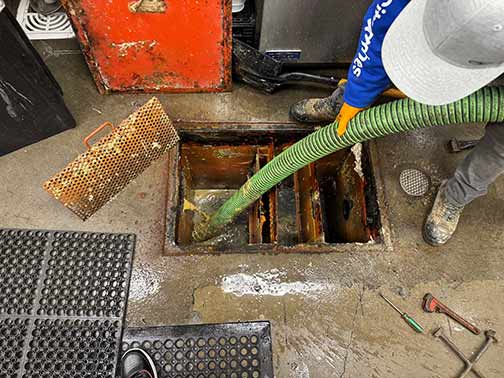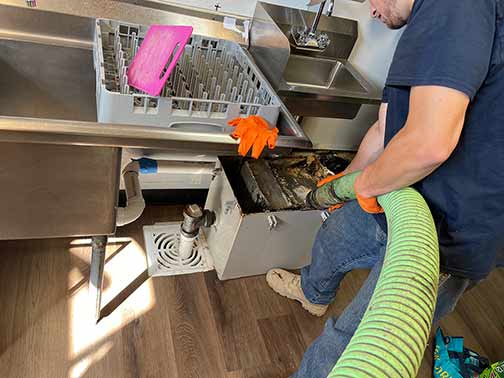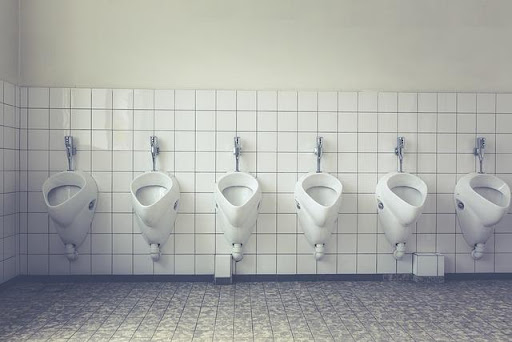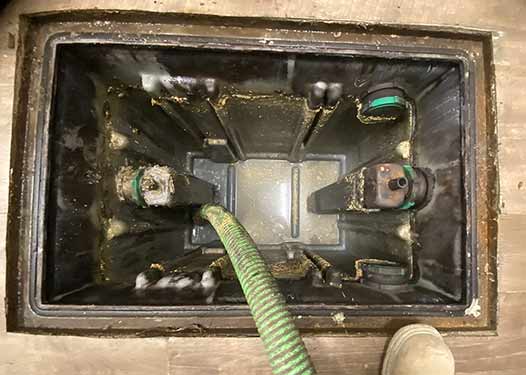
Grease traps are mandatory for Chicago businesses that produce a lot of used grease. That includes commercial kitchens, restaurants, and establishments where food is prepared in large quantities. Grease traps are necessary for the safety of the city’s vital infrastructure.
But grease traps do not only exist to protect Chicago’s sewer systems from the risk of fatbergs. Fatbergs are rock-hard masses that form inside the sewers when grease fuses with non-biodegradable waste materials, such as wet wipes, cloth, sanitary napkins, cotton buds, etc.
Fatbergs are a huge problem for cities; they are as strong as concrete and can grow to enormous sizes inside the sewer system. These hard masses cause blockages that can result in severe city-wide flooding. Specialized equipment is usually required to remove a fatberg, notes the experts at Rising Tide Property Management.
Grease traps also protect a business’s sewer lines from the risk of damage from clogs caused by deposits of FOG (fats, oils, and grease). Along with non-biodegradable materials that sometimes find their way into the pipes, FOG is the leading cause of sewer line damage for businesses.
However, these problems can be avoided by installing a grease trap between your kitchen drains and sewer lines. A grease trap intercepts and retains the grease inside wastewater, denying it the chance to enter the sewer system, which can cause problems for both the business and the city.
One unavoidable outcome of this system is that grease traps inevitably fill up with grease. When this happens, the device loses its functionality. Instead of trapping the grease in wastewater, it allows grease to flow into the sewer line and onward into the city sewer system.
That is why it is vital to clean your grease trap periodically. How often should you do this? What are Chicago City’s regulations for grease trap cleaning? This post will answer these questions.

Grease traps are to be cleaned every 90 days (every three months) or when they are 25% full, depending on which comes first.
How often should you clean your grease trap?
As per EPA regulations, which also apply to Chicago, these are the guidelines for grease trap cleaning:
The 25% rule
Grease traps are to be cleaned every 90 days (every three months) or when they are 25% full, depending on which comes first. This rule only specifies the minimum requirement. If the grease trap is small or a lot of grease is generated in your establishment, you may want to clean your grease trap monthly.
Every 14 days
The above rule applies to outdoor grease traps only. Small indoor grease interceptors must be cleaned every 14 days, the maximum allowed period. Clean the receptacle more frequently if the grease trap is small or fills up very fast.
Proper record-keeping
In addition to cleaning the grease trap, maintain detailed records of the grease trap cleaning schedule. The details expected in the records include the cleaning date, the cleaning method used and the contractor’s name.
Regular grease trap inspections
City officials are mandated to visit and inspect establishments that have grease traps. These visits are impromptu, and they are done to assess the grease trap, take careful measurements of grease levels, and ensure compliance with the applicable rules and regulations.
Other guidelines
These additional guidelines apply. To minimize the rate of grease buildup and the risk of grease trap malfunction, never dump grease directly into the drain, scrap leftovers from plates and bowls, and recycle grease.
Why is grease trap cleaning important?
Avoid fines and penalties
Businesses that fail to follow these guidelines risk hefty fines from city health officials and the temporary or permanent closure of their premises.
Protect your business
Bad odors in a kitchen or restaurant floor are not conducive to customers’ dining experiences. A neglected grease trap will leak foul odors into your business premises.
Protect your customers
Grease traps breed bacteria. If the device is not cleaned on time, it can overflow, and bacteria may find their way into food, causing food poisoning.
Avoid grease tank damage
If it stays too long inside the tank, grease will release hydrogen sulfur gas, which in turn becomes sulfuric acid that can end up corroding the metal parts of the tank.
Prevent sewer line problems
Grease trap neglect increases the risk of clogs inside your sewer line. If the city sewers are also affected, you will pay heavily to fix them.
Save money
By having your grease trap cleaned out at the right time and in the recommended manner helps you save money and avoid the costly consequences listed above.
To conclude, EPA data shows that the USA experiences around 40,000 sewer overflows yearly, and 5,000 of these overflows are due to FOGs (fat, oil and grease). You can avoid these problems if you take a few simple precautions.

